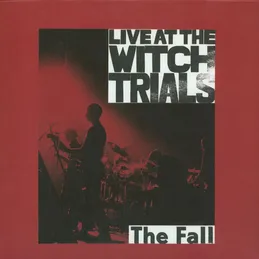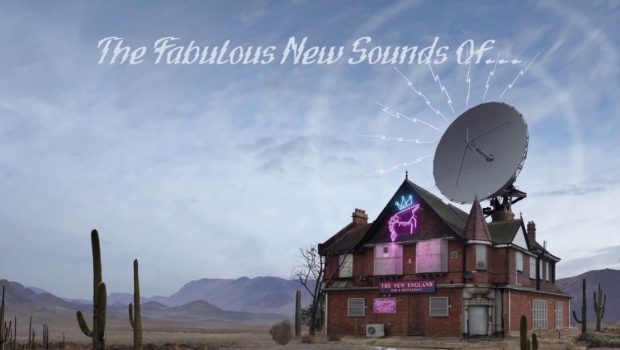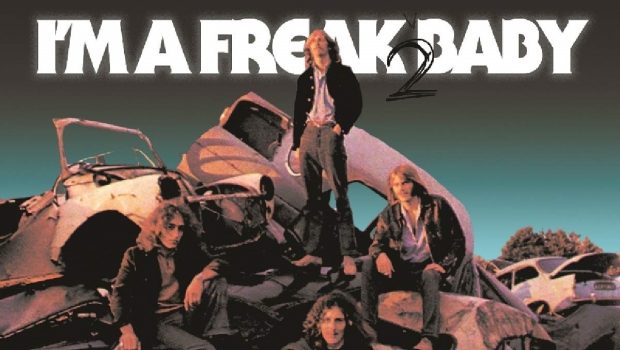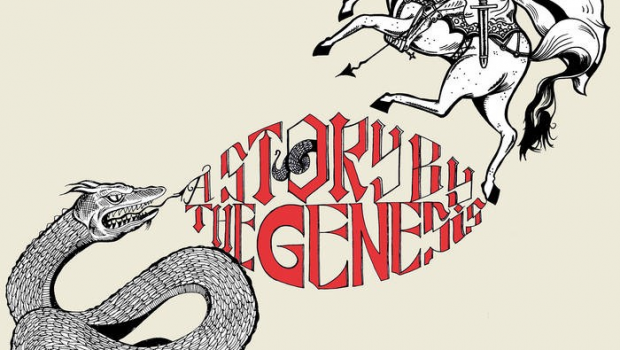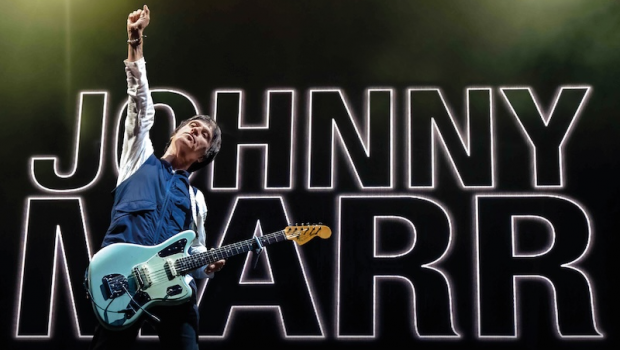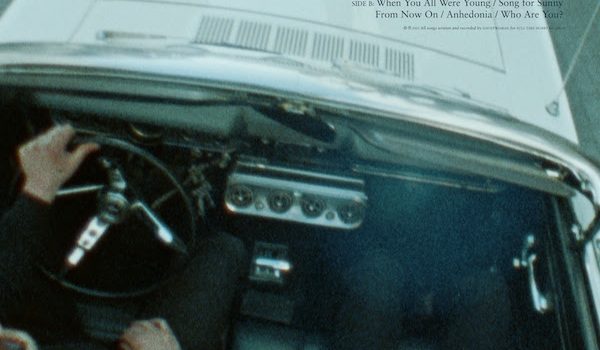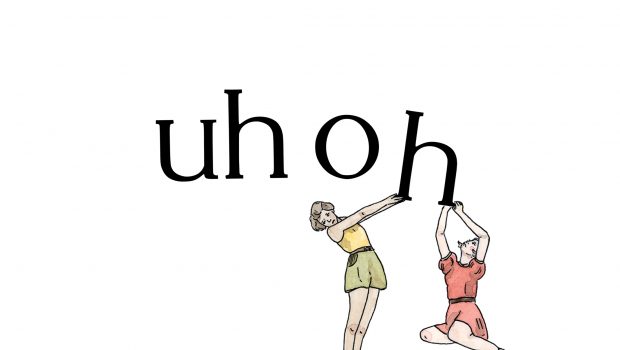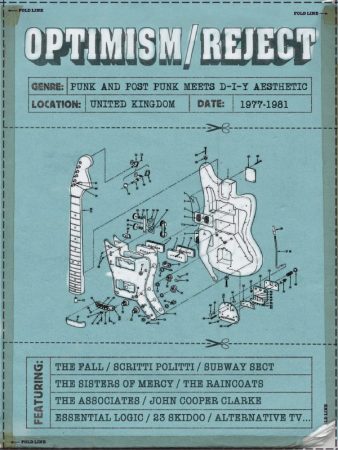 Whatever the history of punk, it’s impossible to deny the huge impact that this short-lived, intense burst of energy, ethos and political statement had on the music scene not just in the US and UK, but across the world. The striking substance-over-style aesthetic to the music, the boundary-pushing, taboo-breaking socially unacceptable behaviour, even the fashion which went hand-in-hand with the music have endured in a way that little else has.
Whatever the history of punk, it’s impossible to deny the huge impact that this short-lived, intense burst of energy, ethos and political statement had on the music scene not just in the US and UK, but across the world. The striking substance-over-style aesthetic to the music, the boundary-pushing, taboo-breaking socially unacceptable behaviour, even the fashion which went hand-in-hand with the music have endured in a way that little else has.
All of these incendiary elements are to be found in the first few songs of new Cherry Red release Optimism / Reject, which charts the emergence of post-punk and the roots of so many other styles, tracing some of the more radical roots of the musical landscape of the 1980’s. Optimism / Reject focusses on artists who were making use of new, cheap technology to produce novel-sounding DIY recordings, free from the strictures of the record business of the time, and pushing the boundaries of contemporary music.
Well presented in a book format with a 64 page booklet featuring extensive liner notes, including information about each track, Optimism / Reject is definitely pitched as one for the collector – but at £24.99 it’s very reasonably priced for a 4-CD set, particularly given the quality of the information accompanying the music, the breadth of styles covered and the artists featured, including John Cooper Clarke, The Fall, Sisters of Mercy and, perhaps surprisingly, Thompson Twins.
The music is presented in a mix format, with one song running into another (which is actually my only gripe about the whole thing) and it seems well curated, with a nice flow and a balance between different styles and mood but without jumping all over the place – however, this is apparently just a happy coincidence, as the songs are presented in chronological (release) order – with the first song from May 1977 and the latest from January 1982.
What’s really striking to me about this compilation is the dramatic stylistic evolution of the music from 1977-1981, from the unrefined, burning-hot expressions of what I would call “trad” punk to the much more polished and musical offerings just a few years later, as the origins of punk had been internalised by career musicians, normalised by the media and co-opted by record executives – and “punk” itself had moved on to more hardcore expressions.
Many of the early tracks manage to convey both fierce emotion and resonant messages without polished sounds or practised musicianship – but these often terrible-sounding records (in a production sense) actually broke new ground sonically and created the foundations for so many of the lo-fi modern rock music sounds which have endured or been rediscovered, appropriated or re-invented since the 80s, particularly as the life cycle of a genre pushes it towards being stale and over-produced.
Soundbites like “Gonna fight for the right to be different; gonna fight for the right to choose” from The Drones 1977 ‘You’ll Lose’ seem, in retrospect, naive and simplistic by the standards of what has come in the intervening 40 years, but also refreshingly clear and political against the backdrop of a modern “alternative” scene which has become just a facet of pop, and itself the “substance-over-style” antithesis of punk. Other songs perhaps seemed rousing at the time, but fall flat to my ears – prime example being Victim’s ‘Mixed Up World’, which is a nice sentiment but by modern standards is just a bit tame and middle-of-the-road.
It’s actually quite surprising as the compilation progresses to hear how much of the later music relies on groove, with strong rhythm sections, particularly bass, laying down the foundations of tracks, creating space for discordant or challenging melodies on top, with many of the later tracks becoming much more off-the wall and musically technical – much more abstract and less recognisably punk-y.
There is a thoroughly 80’s / new romantic vibe on Modern Eon’s ‘Choreography’; Josef K’s ‘Chance Meeting’, has a lo-fi synth sound which is basically the Magnetic Fields entire oeuvre. The typically rough sounding Mo-Dettes ‘Massochistic Opposite’ is a favourite of mine. ‘Shangri-La’ by Nightmares in Wax is also delightfully weird.
Overall, Optimism / Reject is not simply a compilation of punk and post punk; it is a documentary of the alternative and indie music explosion that punk died in, and the groundswell of new music that grew out of the chaos of the late 1970s and how that went on to influence what came after. Almost all of the music on the compilation is “punk” in the sense that it is underpinned by a questioning or outright rejection of the status quo, the system and the strictures of society. This collection is a snapshot of frustrations, disenfranchisement and an outpouring of anger from a music scene which still found opportunities to challenge, push boundaries and most importantly coalesce around something – even if just briefly.
Many of the issues railed against in these songs of Optimism / Reject are powerfully relevant even now, including John Cooper Clark’s 1977 ‘Suspended Sentence’ about re-introducing capital punishment and Skids ‘Charles’, about working conditions and automation.
Much of the joy of listening to (and reading) Optimism / Reject lies in realising just how much of an influence this short period has had, over more than four decades which followed it – and it’s harder to look at anything coming out today and really find people really maximising technology and independent recording and distribution to create something new and challenging in the same way.
The contrast is elegantly summed up with the contrast of the compilation’s opening track “Michael’s Monetary System” – a music-less, avant-garde, spoken word piece exploring the construct and rejection of the monetary system – with the penultimate track “Plan 9 From Outer Space” – an up-beat tribute to the 1959 independent sci-fi movie. This paints a picture of a scene populated by better musicians with nothing to say – which brings us full-circle back to the anti-musical expressions that started the punk movement in the first place…
This is a really instructive overview-in-microcosm of the evolution of a musical style from something hot and niche into something mainstream – without the musical offering ever actually reaching the point of blandness.
Optimism/Reject: Out Now (Cherry Red Records)
